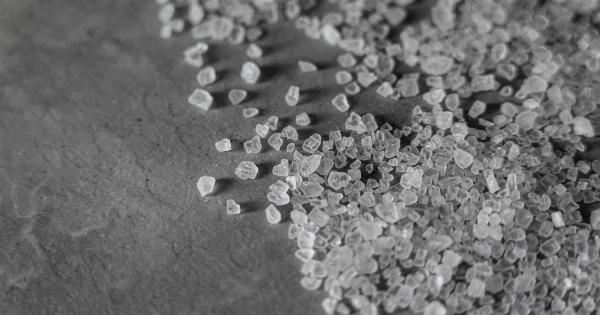Are you trying to eat a healthier diet but finding it difficult to figure out which ingredients to avoid? Salt is a notorious culprit that can make it tricky to navigate the grocery store.
Many processed and packaged foods are loaded with it, and even some “healthy” options may contain more than you realize. Here are the top three ingredients to be on the lookout for so you can reduce your salt intake and improve your overall health.
1. Sodium Chloride
Sodium chloride is the chemical name for table salt. It’s a common ingredient in many packaged foods, adding flavor and helping to extend shelf life.
However, consuming too much sodium can lead to high blood pressure, heart disease, stroke, and other health problems. The American Heart Association recommends no more than 2,300 mg of sodium per day, but many people consume much more than that. To reduce your sodium intake, read labels carefully and look for products that are low in sodium or have no added salt.
Be especially wary of processed snacks, canned soups and vegetables, and condiments like ketchup and soy sauce, which can all be high in sodium.
2. Monosodium Glutamate (MSG)
MSG is a flavor enhancer that’s often added to Chinese food, processed meats, and packaged snacks. While it’s generally recognized as safe by the FDA, many people report adverse reactions to it, such as headaches, sweating, and nausea.
Some studies have also linked MSG consumption to obesity, metabolic disorders, and other health problems. MSG is often hidden on labels under other names, such as hydrolyzed vegetable protein, autolyzed yeast extract, and sodium caseinate.
If you’re trying to avoid MSG, read labels carefully and look for products that are labeled “no MSG” or “MSG-free.”.
3. Sodium Nitrite and Nitrate
Sodium nitrite and nitrate are preservatives that are commonly used in processed meats, such as bacon, ham, and hot dogs. They help to prevent the growth of harmful bacteria and preserve the color and flavor of the meat.
However, consuming too much sodium nitrite and nitrate has been linked to an increased risk of cancer, particularly colorectal cancer. To reduce your intake of these preservatives, look for nitrate-free or uncured meats, or choose fresh meats and cook them yourself at home.
Reducing your salt intake can be challenging, but by paying attention to labels and choosing whole, unprocessed foods whenever possible, you can improve your overall health and reduce your risk of developing chronic diseases.
It may take some practice and planning, but your taste buds and body will thank you in the long run.




























